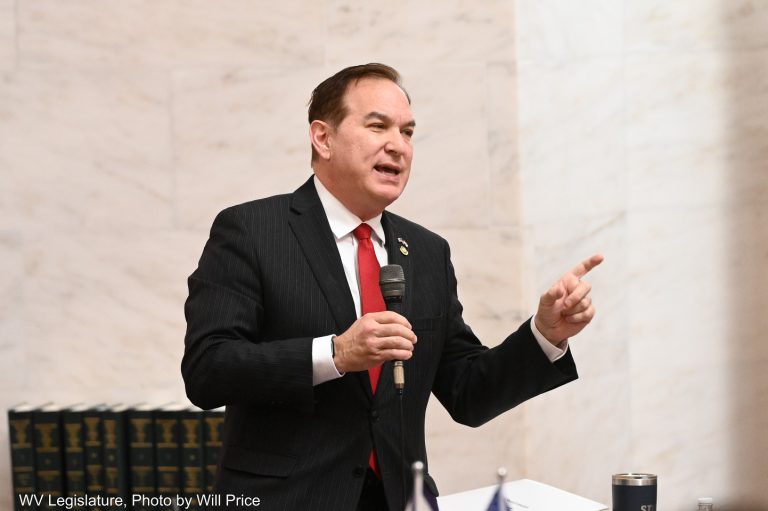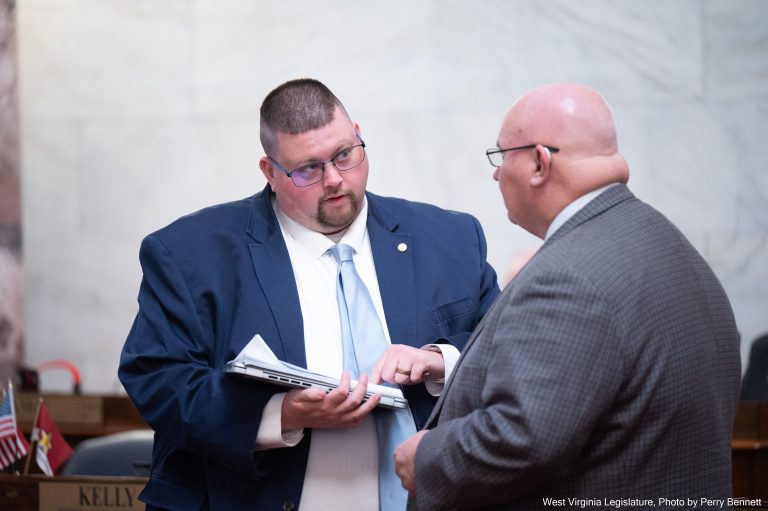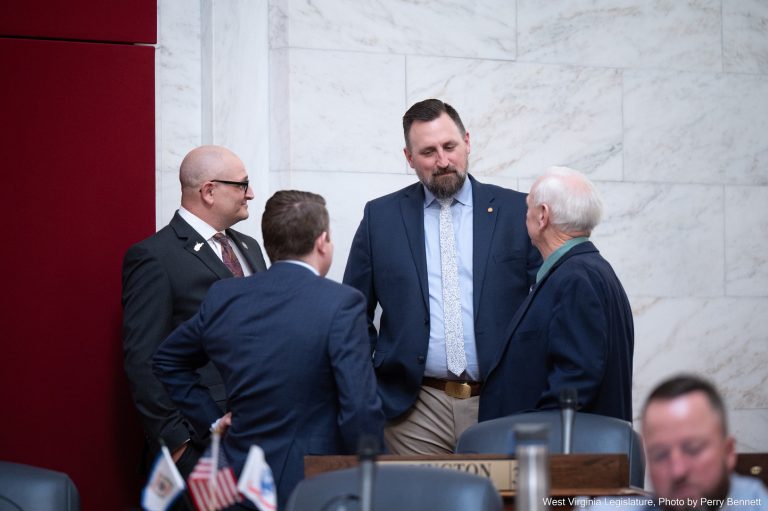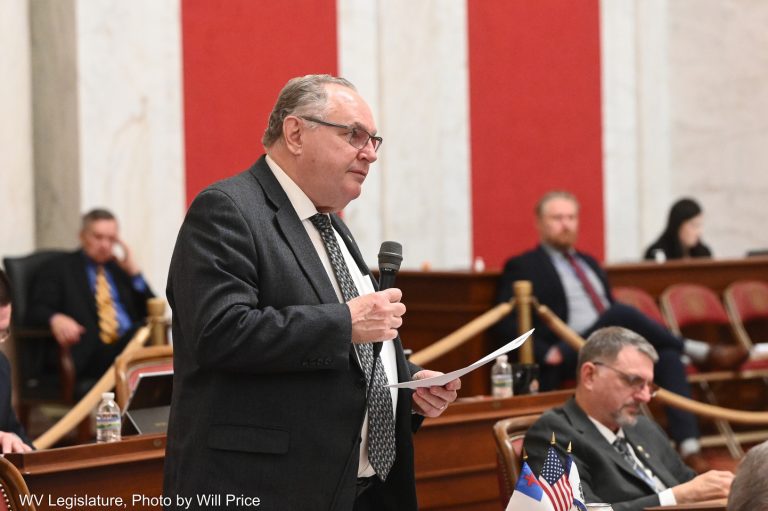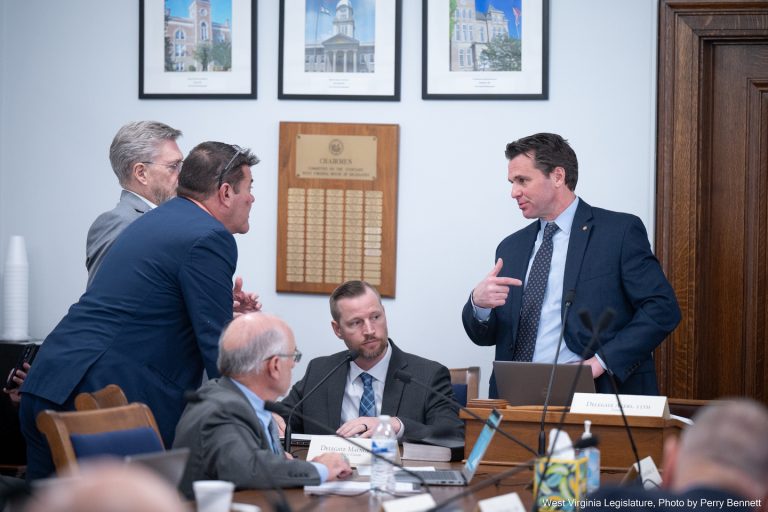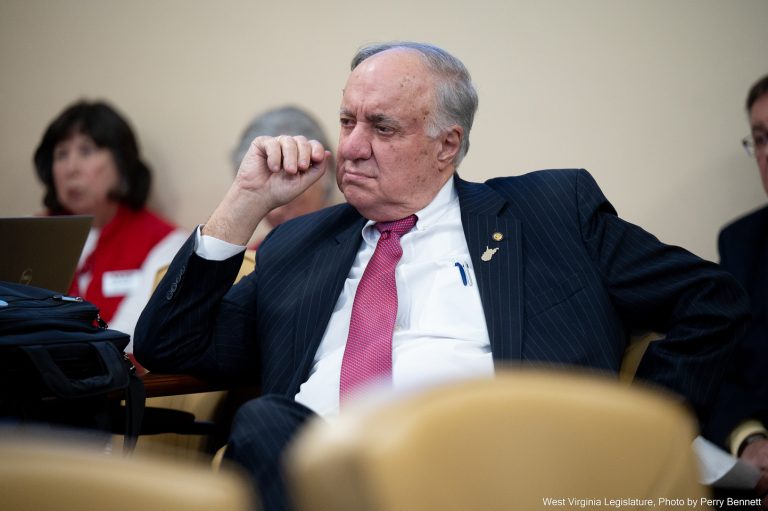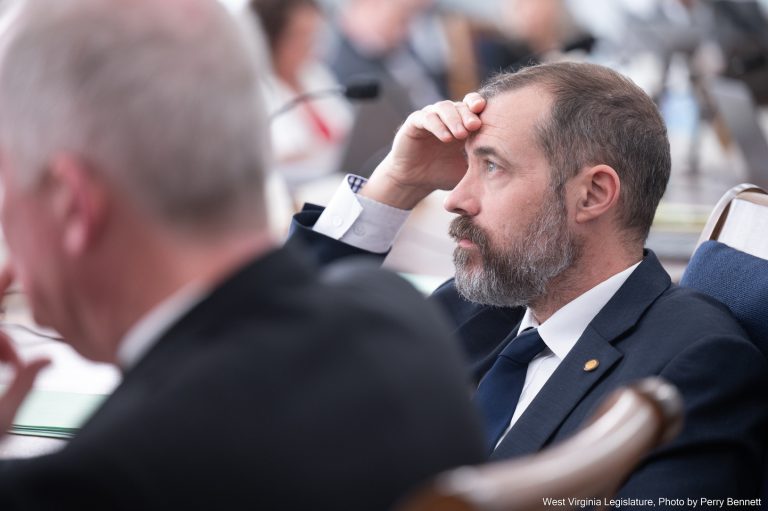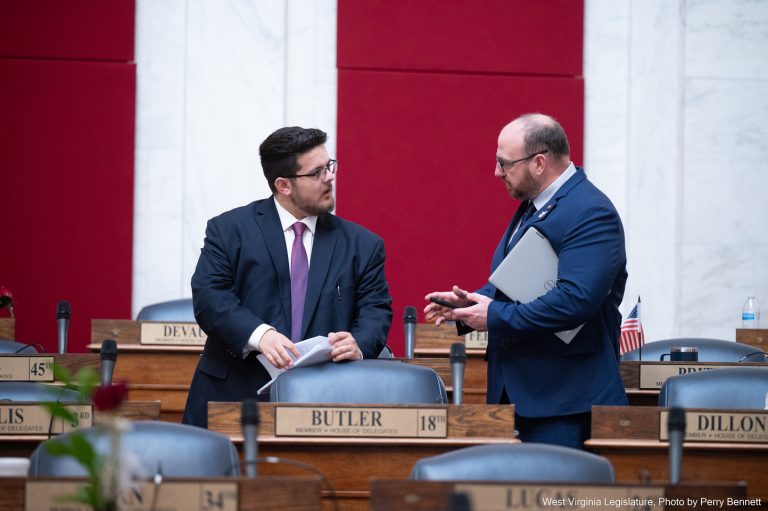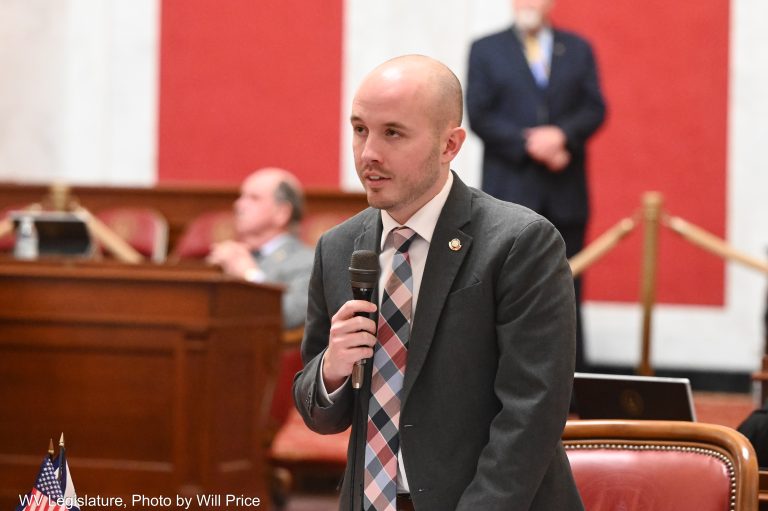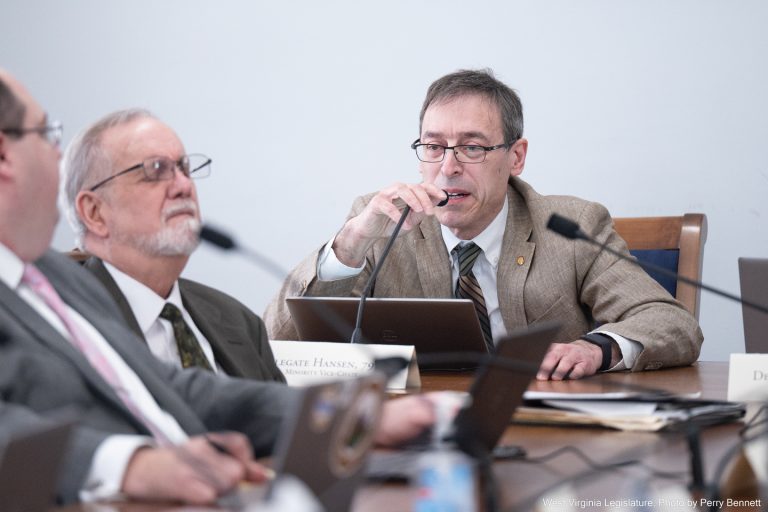The Senate passed a bill that would define “man” and “woman” during Monday’s floor session.
The legislation, Senate Bill 456, would define “sex,” “male,” and “female” in West Virginia state law based on biological characteristics observed at birth. The bill also aims to limit certain spaces to biological males and females, prohibiting transgender individuals from using facilities based on the gender they identify as.
Those single-sex spaces preserved in the bill include restrooms, changing rooms, and sleeping quarters for overnight trips – within domestic violence shelters, public schools, and state higher education institutions and correctional facilities.
The legislation passed on a 32-1 vote with one member absent.
The lone no vote, Joey Garcia (D-Marion) argued that the proposed legislation would hurt some of his most vulnerable neighbors. In his view, the bill is not needed and he fears it will be unnecessarily burdensome not only to transgender people but also to the impacted institutions that will have to comply.
Mike Stuart (R-Kanawha), argued for the majority, stating his opinion, that the bill is compassionate in that it protects the state’s girls from potential harm.
The bill now heads to the House of Delegates for consideration.
The Senate is adjourned until tomorrow, March 4, at 11 a.m.
Afternoon Meetings:
Transportation at 1:30 p.m. in 451M
Workforce at 1:30 p.m. in 208W
Energy at 2 p.m. in 208W
Pensions at 2 p.m. in 451M
Judiciary at 3 p.m. in 208W
Morning Meetings for March 4:
Education at 9:30 a.m. in 451M
Gov. Org. at 9:30 a.m. in 208W


